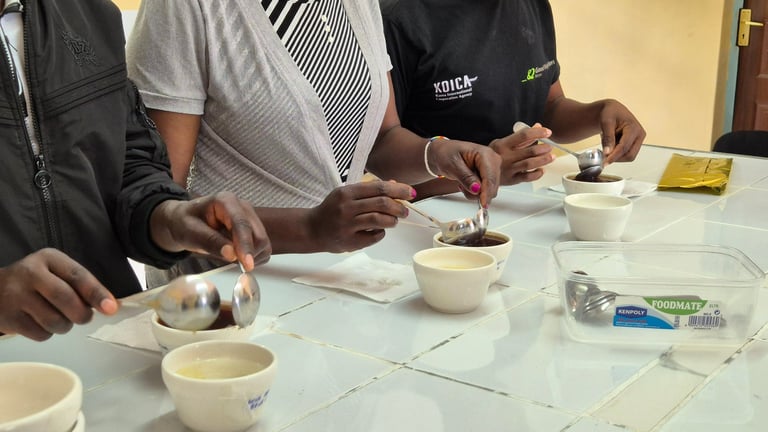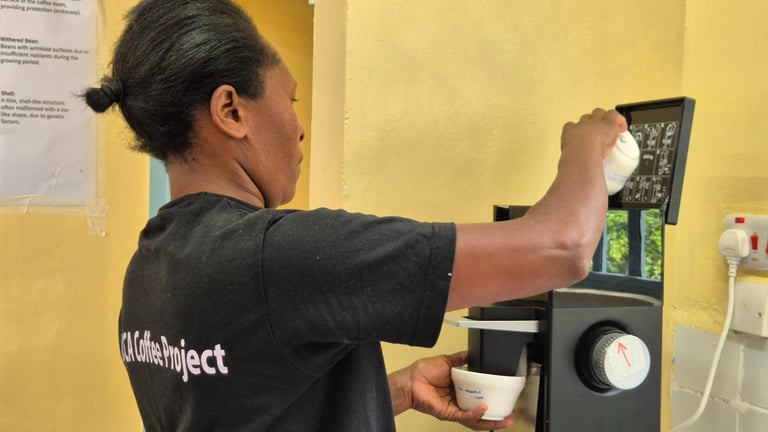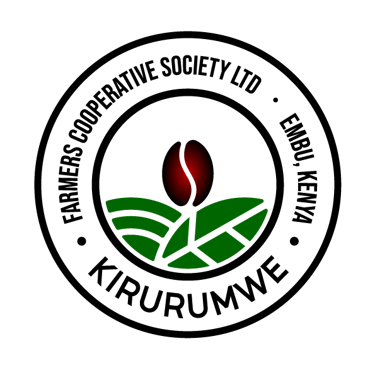Empowering Coffee Farmers Through Sustainable Practices: Advanced Q-Grading Training at Kirurumwe Coffee Lab
NETWORKING WITH OTHER SOCIETIESBLOG POST
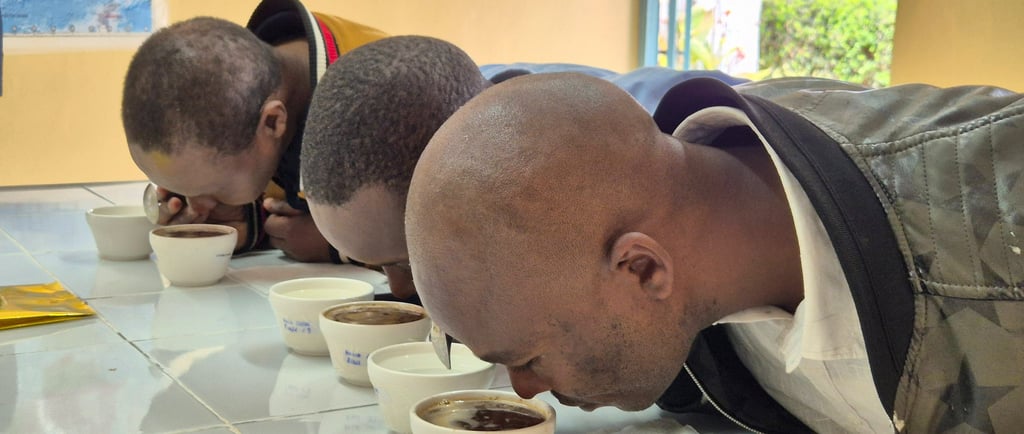

Introduction to Advanced Q-Grading Training
On September 12, 2024, Kirurumwe Coffee Lab hosted an insightful advanced Q-grading training, bringing together 15 enthusiastic trainees, not only from Kirurumwe FCS but also including farmers from other coffee cooperative societies within Embu that are included in the Embu coffee union. The training focused on the art of coffee grading, sustainable farming, and cupping tests, structured into three key segments: eco-friendly farming practices, an overview of demonstration farm activities, and hands-on cupping tests.
A Journey into Eco-Friendly Farming Practices
The first part of the session, led by Eric Maina, an experienced Kenya Good Neighbors agronomist, focused on the importance of sustainable farming practices. The attendees learned about a variety of eco-friendly solutions that enhance soil health and promote plant growth, all while reducing reliance on chemical fertilizers. The trainees to several indigenous farming techniques that have been successfully used in organic coffee cultivation:
Indigenous Microorganisms (IMO): Locally sourced microorganisms cultivated to improve soil health and boost plant resilience. IMOs help enhance nutrient absorption and soil microbial diversity.
Fermented Plant Juice (FPJ): A natural liquid fertilizer made from fermenting fast-growing plants. It strengthens plants’ resistance to diseases and accelerates growth.
Fermented Fruit Juice (FFJ): Made by fermenting ripe fruits, FFJ provides easily absorbed minerals and vitamins, contributing to healthier crops.
Oriental Herbal Nutrient (OHN): A blend of herbs like garlic, ginger, and cinnamon fermented to create a natural remedy for pests and plant diseases.
Fish Amino Acid (FAA): A nitrogen-rich fertilizer made from fermenting fish intestines, promoting strong leaf and stem growth.
These methods exemplify the power of nature in supporting healthy coffee farming while safeguarding the environment. Eric’s session emphasized that adopting such eco-friendly practices not only ensures long-term sustainability but also contributes to the production of high-quality coffee.
Exploring the Demonstration Farm
The second part of the training was on the demonstration farm, where Anne Mutwoki, Kenya Good Neighbors agronomist, guided the trainees through ongoing activities. The demonstration farm that is located at Kevote factory farm one of the KFCS factory, is home to 40 mature coffee trees, with half managed using conventional farming methods and the other half using eco-friendly practices. This setup allowed for a direct comparison of the two methods in terms of productivity and quality.
By employing organic practices like IMOs, FPJ, and FFJ, the eco-friendly section of the farm showed significant improvements in soil health, yield potential, and bean quality. The results spoke volumes about the benefits of adopting sustainable farming methods, and the trainees saw firsthand how such practices contribute to a healthier environment and superior coffee beans.
Cupping Tests: A Tasting of Quality
The final part of the training was dedicated to cupping tests, led by Migyeon Kim, the International project coordinator of Kenya Good Neighbors. Trainees participated in a cupping session where coffee beans harvested from both the conventional and eco-friendly sections of the demonstration farm were tasted and analyzed. The goal was to evaluate the differences in flavor profiles, acidity, body, and overall quality between beans grown under the two farming systems.
The results from the cupping tests clearly illustrated the positive impact of eco-friendly farming practices on coffee quality. The beans from the eco-friendly farm had superior characteristics, including better flavor profiles, increased body, and enhanced acidity compared to the conventional beans.
Conclusion: A Step Towards Sustainable Coffee Farming
The advanced Q-grading training at Kirurumwe Coffee Lab was an enlightening experience for all participants. From understanding eco-friendly farming practices to exploring the demonstration farm's results, the training provided invaluable insights into how sustainable methods can enhance coffee quality and ensure long-term environmental sustainability.
By incorporating these techniques into everyday farming practices, coffee producers can achieve better yields, superior-quality beans, and a healthier planet. The session was a step forward in empowering coffee farmers to adopt eco-friendly farming methods, ultimately ensuring a more sustainable future for the coffee industry.
Through this training, Kirurumwe Coffee Lab reaffirmed its commitment to fostering sustainable coffee farming practices while promoting the growth of high-quality coffee that meets the expectations of global consumers. It's also a testament to the commitment towards improving coffee quality and fostering sustainable practices within the industry. The trainees, equipped with new insights and hands-on experience, are set to make significant contributions to their respective fields, ultimately enhancing the overall quality of coffee produced in their regions.
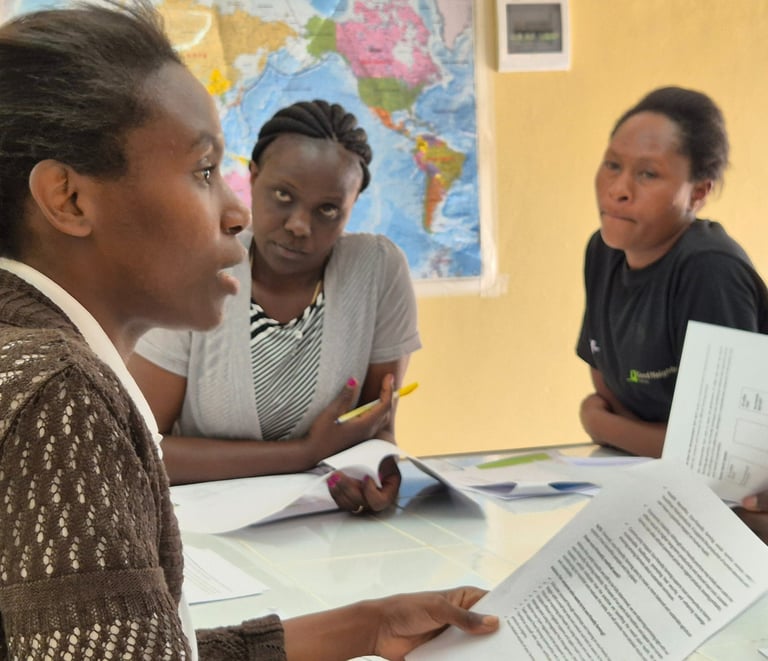

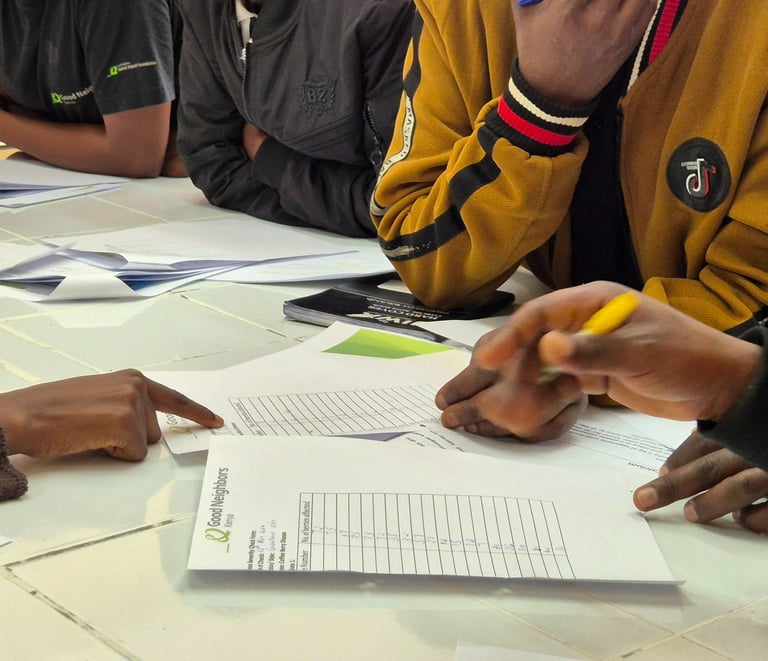

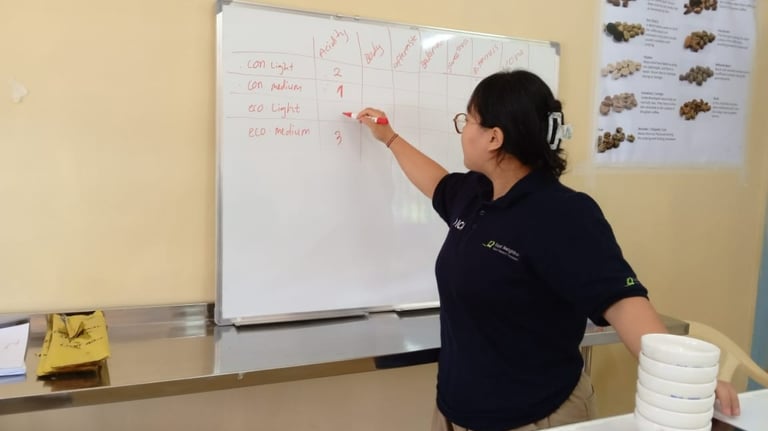

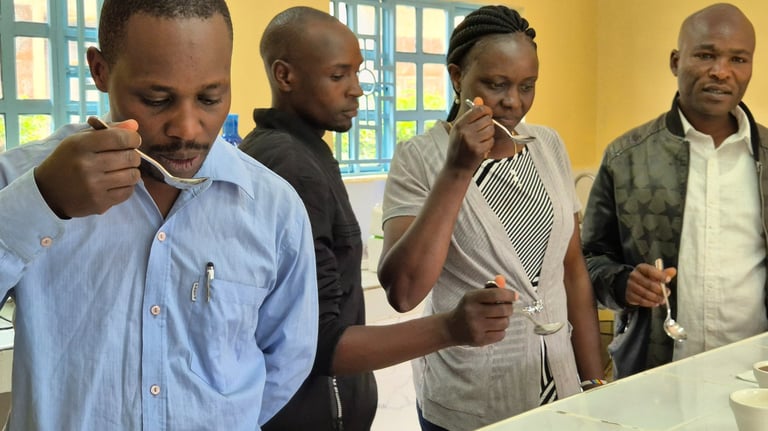

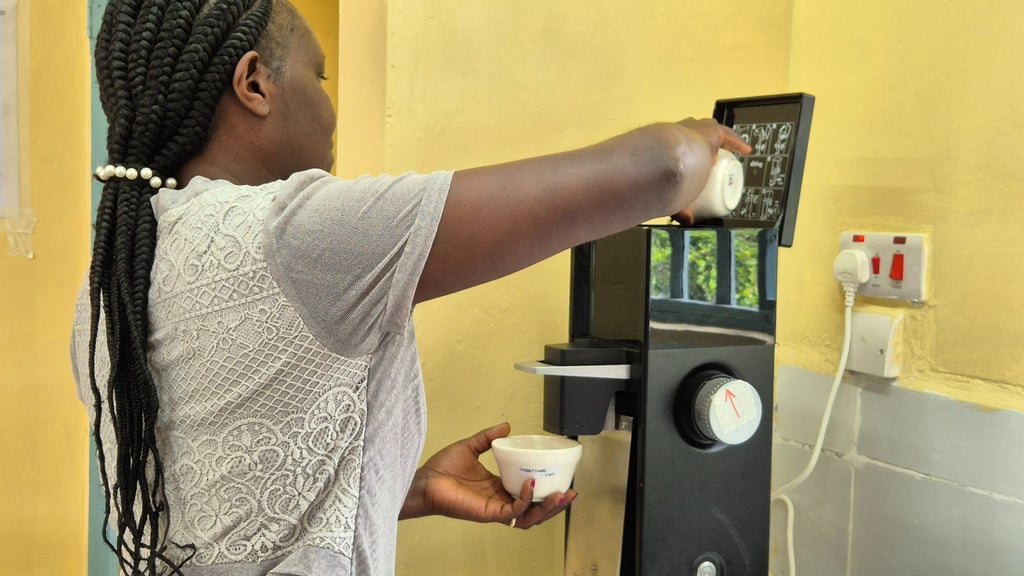

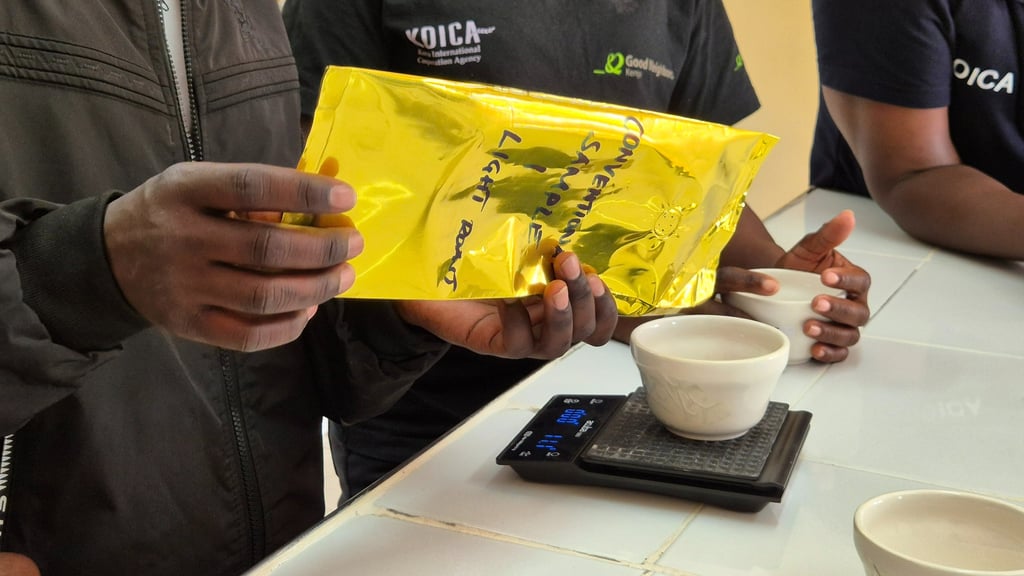

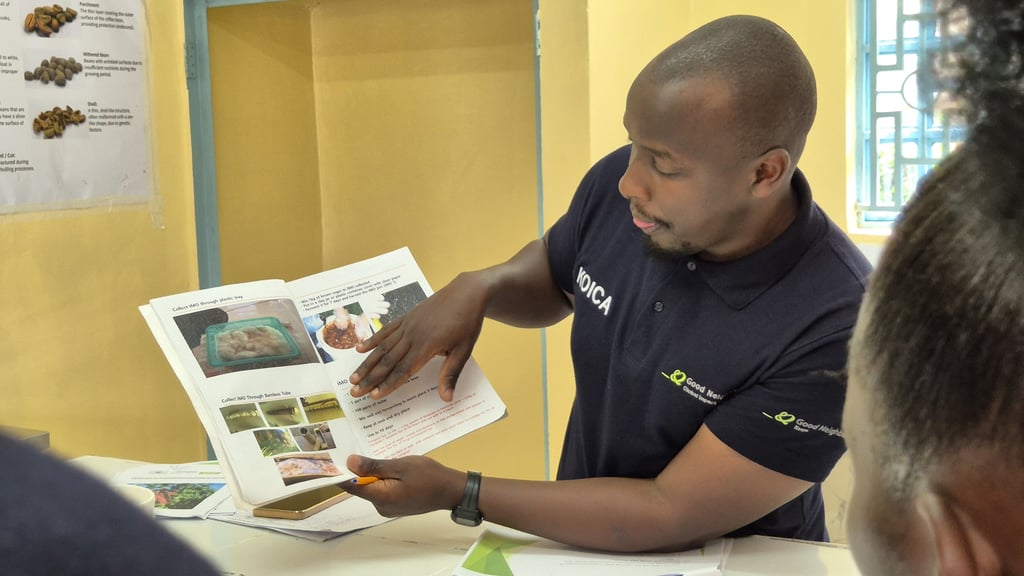

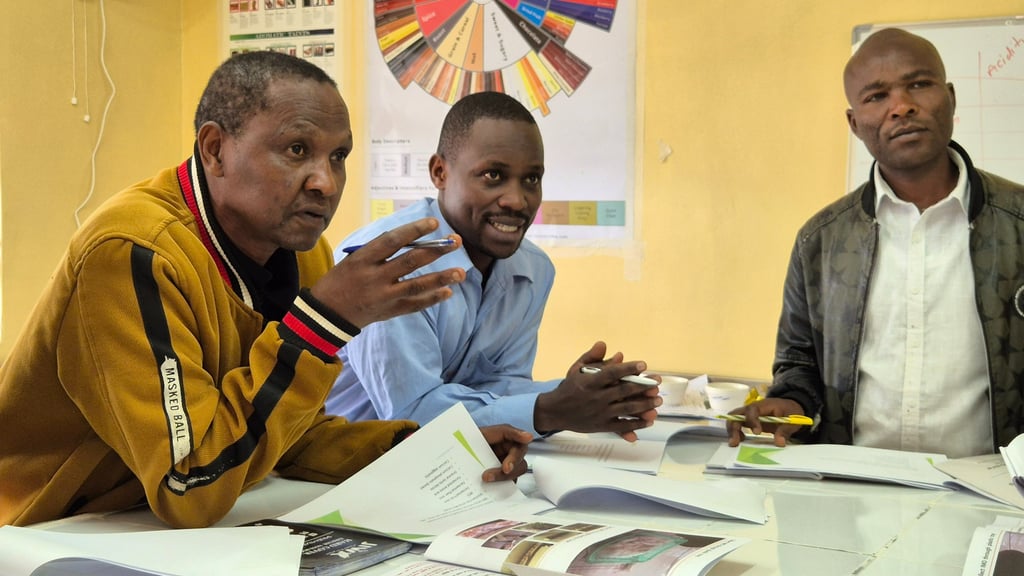

Advanced Q-Grading Training
"Refining Quality, Cultivating Excellence, Elevating Coffee Through Sustainable Practice"
